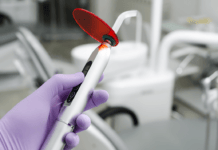You’ve made it through two to three years of dental hygiene school with long days and nights studying and probably missing out on a few hours of shut-eye. All that diligence and hard work have paid off, and you’ve got your first job at a local dental practice. Your head is telling you to be excited, but your nerves are saying something different!
Starting a new job can be both exciting and challenging. You may be wondering if you’ll fit in with the dental team, if the team will like you, or if you will remember everything you learned in school.
The bottom line is that you will most likely fit in because you’ve gone through the interview process and met the people you’ll be working with. You liked them, and they liked you, which is why they offered you the job. You’ll also remember that you’ve spent the last few years learning and practicing your craft and will remember what to do!
Tips for the New Hygienist
I’ve compiled nine tips and best practices to help you succeed in your new career as a dental hygienist.
1) Day One and First Week
You’ve arrived at your new place of employment. Be sure to show up with any required paperwork for new hires, your smile, and your willingness to jump in and learn. The paperwork necessary may include your W-4 federal tax form, your I-9 form, which qualifies you to work in the United States, and a copy of your dental hygiene license.
Don’t be afraid to ask questions and get clarification on items you do not know or are confused about. You may wonder if there is a designated time for lunch breaks or the process for ordering hygiene supplies. It’s also important to be open to constructive and helpful feedback so that you can be the best team member you can be.
At the end of the week, ask for feedback on your performance. You may want to check in with your office manager on how you handled office protocols such as scheduling recare appointments or transferring your patient back to the front desk team.
Request a meeting with your doctor to follow up on your clinical performance. Ask your doctor to share a clinical performance highlight they noted and cover any areas you may need to improve upon. This is a proactive step to ensuring your success in the office.
2) Join Your Local Dental Hygiene Association
Joining a local or state association is a great way to network with other dental professionals and keep abreast of learning opportunities. When you belong to an association, you may have the opportunity to attend their meetings and events. Often these are held once per year and offer continuing education courses and fun networking events. Association membership is great for growing your network and dental hygiene knowledge.
3) Adopt a Business Mindset
The dental hygiene chair is fundamental to the successful operation of most practices. It is imperative that a hygienist has the ability to be proactive in improving patients’ oral health. Have regular meetings with your dentist and office manager and share ideas on how you can partner for the success of the practice. This could be as simple as discussing your ideas on different appointment lengths, patient oral health education ideas and products, or sharing ideas on how to bring in more patients through community outreach or specials.
4) Ergonomics for Better Posture and Career Longevity
As a new grad, it’s important to understand the effects of good posture and stretching. Dental hygienists hold themselves in the same position and use repetitive motions for many hours during the day, which may be difficult for some to get used to.
This is where ergonomics comes in. Effective ergonomics can decrease the risk of work-related musculoskeletal disorders and injuries and help with career longevity.1 This may look like ensuring proper patient positioning and operator chair height, using loupes, adequate lighting, using sharp instruments that aren’t overdue for replacement, and taking regular quick breaks to stretch your arms, wrists, and back. Chairside stretching is an important strategy to perform throughout the workday.1
5) Find a Mentor
Having a mentor can help guide you in the field of dental hygiene and can play a vital role in helping you feel more comfortable with your new career. If you are joining a large dental group or DSO, you may have a hygiene mentor assigned to you. If you are joining a private practice, there may be a dentist or more experienced hygienist in the office who would be willing to serve as your mentor or at least a point of contact for questions, advice, or best practices.
Another option is to ask your school professors for a recommendation. A mentor can help motivate, guide, and encourage you to work towards your hygiene goals.
6) Social Media Equals Connections
Consider using social media to connect with other dental hygienists, professionals, and manufacturers. This can help you network with like-minded professionals as well as keep up to date with emerging trends in dentistry.
You can join a dental hygienist Facebook group, follow popular dental-related sites on Instagram and Facebook, and even create your own LinkedIn profile to showcase your hygiene skills, abilities, and related interests. If you have never used LinkedIn, think of it as Facebook for the business world.
7) Continuing Education Courses
Keeping up with your education is important. Just as your state’s dental practice act and laws can change, so can best practices and treatment protocols as new research emerges. It’s going to be important that you keep up with this information by reading your state’s dental practice act often and attending continuing education courses.
Not only will you need a specific number of continuing education credits for your license renewal, depending on your state’s dental practice act, but it’s also a great way to make connections with others while learning important information at the same time. There are a variety of continuing education courses out there. You may find courses that are self-study in written form or recorded webinars, live virtual courses, or in-person courses.
8) Volunteers Needed
Giving back to the community you serve may be something that aligns with your vision, values, and career goals. Many individuals go into the hygiene career field because they have a passion for helping people.
There are more than several organizations out there that would love to have a volunteer. Volunteer hygienists may be able to give back through volunteer work with a local free clinic, by participating in a community outreach program such as a school or underserved community event, or even participating and joining in a mission trip.
When you give your time, you are helping to make a difference in the oral health care of others. A popular event held in communities each year is the Mission of Mercy free clinic event, and the state dental association typically coordinates them. A quick Google search will help you get the information needed if you are interested in volunteering.
9) Communication is Essential
Whether you are communicating with your patients, coworkers, or doctor, you’ll need to ensure you keep these skills up to par. Communication seems easy, but it’s actually one of the more difficult tasks we do daily. You need good communication skills to educate your patients, collaborate with your team members, and build relationships. Having and sharing compassion and empathy is also a must-have skill.2
In Closing
Starting your new dental hygiene career off on the right foot will help you be successful for years to come. Keep an open mind, work to develop trust and relationships with your coworkers and patients, and be a sponge when working with your doctor or mentor. Soak it all in.
This is a great time to be a dental hygienist! Congratulations on starting your journey of helping patients obtain oral and overall health.
Before you leave, check out the Today’s RDH self-study CE courses. All courses are peer-reviewed and non-sponsored to focus solely on pure education. Click here now.
Listen to the Today’s RDH Dental Hygiene Podcast Below:
References
- Gupta, A., Bhat, M., Mohammed, T., et al. Ergonomics in Dentistry. International Journal of Clinical Pediatric Dentistry. 2014; 7(1): 30-34. https://doi.org/10.5005/jp-journals-10005-1229
- Walker, K.K., Jackson, R.D., Maxwell, L. (2016) The Importance of Developing Communication Skills: Perceptions of Dental Hygiene Students. Journal of Dental Hygiene. 2016; 90(5): 306-312. https://jdh.adha.org/content/90/5/306












